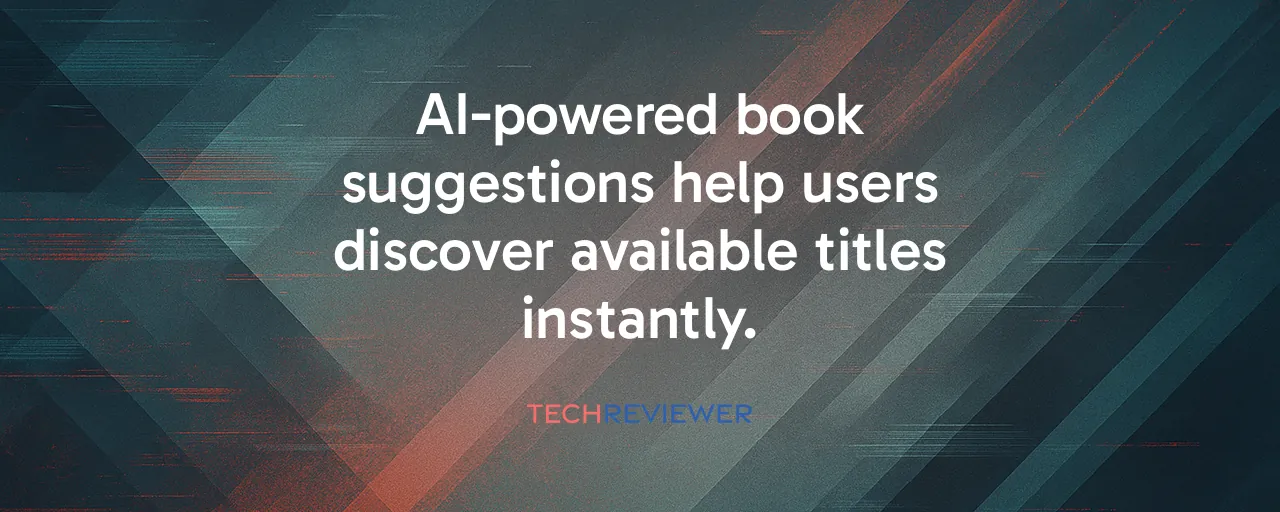A New Way to Find Your Next Read
Libraries have always been about discovery, from flipping through card catalogs to chatting with a librarian about your next great read. Now, apps like Libby are bringing artificial intelligence into the mix. OverDrive, the company behind Libby, recently launched Inspire Me, a feature that lets you type or tap prompts like "spine-tingling dark humor about family chaos" to get tailored book suggestions. In seconds, it pulls five titles from your library's digital collection, prioritizing ones you can borrow right away. Early users on Reddit rave about finding hidden gems, with one noting they stumbled on a back-catalog sci-fi novel they'd never have found otherwise.
Beyond convenience, the tool taps into a library's unique catalog, ensuring suggestions reflect what's actually available. A Midwestern library consortium testing Inspire Me saw an 11% spike in young adult sci-fi checkouts among teens, a group that often skips library visits. The feature's playful prompts, like "time travelers saving dragons," make browsing feel like an adventure, especially for mobile-first readers who want quick, engaging results.
Lessons From Spotify's Playlists
To understand Libby's leap, look at Spotify, which has mastered AI-driven discovery for music. Its Discover Weekly playlists use algorithms to analyze your listening habits and suggest new tracks, often unearthing obscure artists. Like Libby's Inspire Me, Spotify's system thrives on immediacy, serving up personalized picks without long waits. Data from Spotify shows users stream 15% more diverse genres after engaging with AI-curated playlists, a trend mirrored in Libby's 17% jump in first-search checkouts during beta tests.
But Spotify's success comes with lessons. Its algorithms sometimes lean toward mainstream artists, sidelining niche voices unless users actively tweak their inputs. Libraries face a similar challenge. If Inspire Me's model favors popular titles or genres due to metadata gaps, it could overshadow diverse or lesser-known authors. OverDrive says it's addressing this by combining human-curated metadata with AI, ensuring suggestions pull from a library's full range, not just bestsellers.
Why Some Readers Push Back
Not everyone's thrilled about AI in libraries. On platforms like X and librarian listservs, some patrons and librarians argue that human recommendations carry a warmth and intuition AI can't match. A librarian on Reddit called Inspire Me "a shortcut that skips the heart of reader advisory." Others worry about privacy, even though OverDrive insists it strips personal data from prompts and doesn't share user activity with third-party AI models. U.S. laws like the Reader Privacy Act back this up, protecting patron records, but skepticism persists about how AI handles even anonymized inputs.
There's also the question of bias. Research on recommendation systems shows they can unintentionally prioritize certain genres or authors if training data leans too heavily on mainstream trends. For small libraries with limited catalogs, Inspire Me might struggle to deliver varied results, especially if metadata isn't robust. OverDrive is working on transparency, offering explanations of why certain books match your prompt, but some users still want more control over the process.
Balancing Innovation and Trust
AI's potential in libraries is clear: faster discovery, broader engagement, and a lifeline for under-served readers. The Midwestern consortium's success with teens shows how tools like Inspire Me can draw in new audiences. Libraries face a cautious path forward. OverDrive's closed API limits integration with other systems, which could lock smaller libraries into its ecosystem. And while the company offsets its cloud-hosted AI's energy use, it hasn't shared detailed sustainability data, a growing concern for public institutions.
The path forward lies in collaboration. Librarians and developers could co-design prompts to better reflect local collections. Open-source efforts might let smaller libraries build their own AI tools, reducing reliance on big vendors. Publishers could also share richer metadata to spotlight diverse works. For now, Inspire Me is a bold step, but its success depends on earning trust from readers and librarians who value the human touch as much as the tech.
